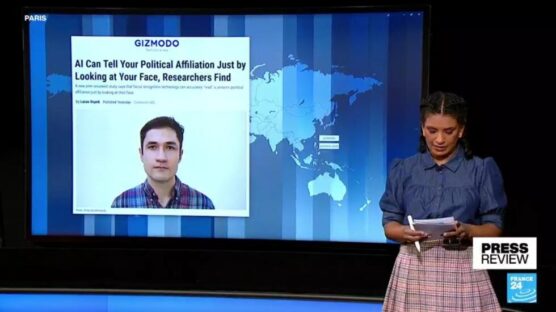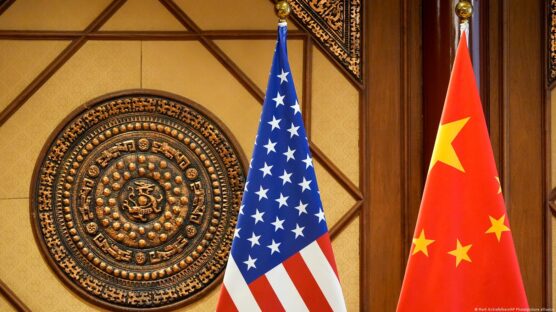Digital sovereignty and data sovereignty
By DW
25 December 2021 |
7:38 am
Digital sovereignty is a key idea in the internet age — the idea that parties must have sovereignty over their own digital data. This can be applied on an individual basis or toward nations — the bottom line is that digital sovereignty involves consideration of how data and digital assets are treated.
Related
Related
27 Apr
Engineers at Columbia University's Creative Machines Lab have developed Emo – a robot capable of mimicking human facial expressions – to “enhance the interactions between humans and robots.” Emma Jehle has more.
4 days ago
We look at reactions to New York's highest court overturning Harvey Weinstein's sex crimes conviction in a major decision that could impact his future appeals. Also: France's highest civil court rules on a case filed by an association claiming ownership of the Louvre's more celebrated painting, the Mona Lisa. Finally, artificial intelligence can accurately predict your political leanings – just by looking at your face!
3 days ago
Iran has been living with Western sanctions for almost 40 years, and never have so many sanctions been imposed so quickly as against Russia. Although their effect is limited, there is little alternative.
3 days ago
Two Russian journalists have been accused of working for a group founded by the late Russian opposition politician Alexei Navalny. If convicted, they could face years in prison.
2 days ago
Although the EU has dramatically reduced the amount of Russian gas it imports, significant quantities are coming into the bloc. New LNG supply routes are a key reason, although pipeline gas is still part of the mix.
2 days ago
Tesla's shares surged after the EV maker won tentative approval to deploy its Full Self-Driving system in China, as Elon Musk met high-ranking officials on a surprise visit to Beijing. Plus, the French state has offered to buy key assets from troubled IT giant Atos, to protect national interests.
Latest
1 day ago
Find these stories and much more when you grab a copy of The Guardian on Thursday.
1 day ago
With less than 100 days to go until the Paris 2024 Olympics, we’re looking into whether or not they will be a healthy investment for Paris and France as a whole. Will the Games boost the French economy? Or will the costs outweigh the benefits?
1 day ago
Film critic Lisa Nesselson speaks to Eve Jackson about the week's film news, including "The Fall Guy" with Emily Blunt and Ryan Gosling, Philippe Caland's three films "Hollywood Buddha", "Ripple Effect" and "The Guru and the Gypsy", plus Luana Bajrami's "Phantom Youth". We finish with Lisa convincing Eve that a film about old French people is entertaining: Claus Drexel's documentary "Les Vieux", which translates as "Old Folks".
1 day ago
The Iran-backed rebel group has begun to extend its power locally and regionally. However its policies are far from good governance, exacerbating the humanitarian situation and the economic crisis across Yemen.
1 day ago
rge swathes of Asia continue to swelter though a dramatic heatwave that has topped temperature records all the way from India to the Philippines. Bangladesh has faced the hottest April on record, with temperatures forcing millions of children to stay home from school and making working in the scorching heat difficult for millions. The heatwave is also leading to water shortages. But that term is one that water supply expert Isha Ray from the University of California, Berkeley does not like. She has been speaking at a conference in Paris called "Facing Environmental Crisis in South Asia" and told us in Perspective why she thinks the term is misleading.
1 day ago
Armed assailants kidnapped a senior judge in Pakistan's restive northwest, news media reported on Sunday, as the county experiences a surge in violence.
Some 15 men on motorbikes stopped the vehicle of Judge Shakirullah Marwat, according to officials cited by the AP news agency.
×

Get the latest news delivered straight to your inbox every day of the week. Stay informed with the Guardian’s leading coverage of Nigerian and world news, business, technology and sports.


















0 Comments
We will review and take appropriate action.